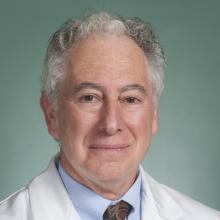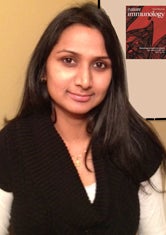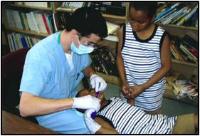Dr. Weinberg received a DMD and PhD from Hebrew University School of Medicine. In 1999, he joined the School of Dental Medicine at Case Western Reserve University. Throughout his research career, he has combined his clinical background with molecular and cellular biological approaches to research the interface between the microbe and the host's innate defenses. Dr. Weinberg holds secondary appointments in Pathology and
Otolaryngology in the School of Medicine.
The Department of Biological Sciences encompasses both teaching and research, with a focus on how the body, and particularly the mouth, fights diseases through innate immune responses.
Discovery Allows Researchers to Study How Immune Cells Ward Off Oral Diseases
Case Western Reserve University dental researchers found a less invasive way to extract single rare immune cells from the mouth to study how the mouth’s natural defenses ward off infection and inflammation. By isolating some specialized immune cells (white blood cells known as “leukocytes”) to study how they fight diseases in the mouth or reject foreign tissues, such as in failed organ transplants, researchers hope to learn more about treating and preventing such health issues as oral cancers, cardiovascular disease, AIDS and other infectious diseases.
Until now, immune cells removed from the mouth couldn’t be grown or isolated with enough viability to study their activities, Pushpa Pandiyan, Assistant Professor of Biological Sciences at the dental school, explained. The new method, developed by Pandiyan, the study’s lead author, is described in Biological Procedures article,“Isolation of T cells from mouse oral tissues” and reportedly allows more than 94 percent of the isolated cells to live long enough to study. Pandiyan received an early career travel award from the American Association of Immunologists to present her findings at the organization’s annual meeting May 2-7 in Pittsburgh. Natarajan Bhaskaran, Yifan Zhang and Aaron Weinberg, also from the Department of Biological Sciences, contributed to the study.
Read more on isolating immune cells.
Summer Research Opportunities for Dental Students
Supported by the School’s Summer Research Program, rising D2 students can participate in laboratory internships during the summer, working with mentors in labs in the department of Biological Sciences. The students receive stipends for their full-time summer research, and travel funds may be available to present their work at a national meeting. Students also compete for awards by presenting their work in the Dental School’s annual Professionals Day. For more information about the Summer Research Program, please visit: https://case.edu/dental/research/student-research. Other students, including high school students enrolled in our Case Cancer-focused Summer Undergraduate Research (CanSUR) Program (funded by the NCI), Capstone undergraduates, medical students and those in other graduate programs, find research work in the department during the summer and the school year.




